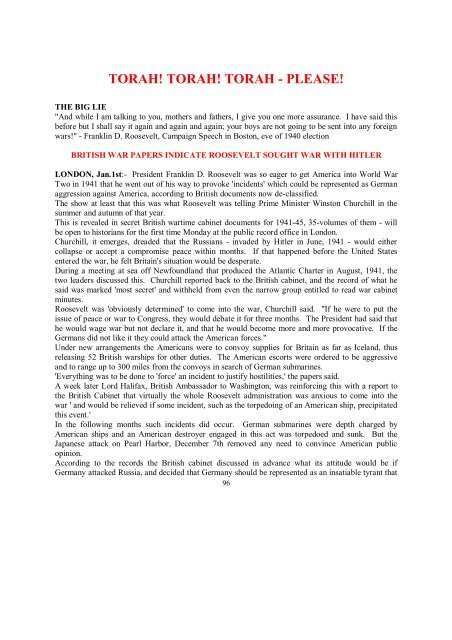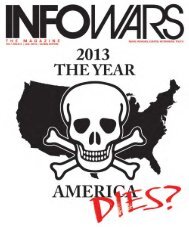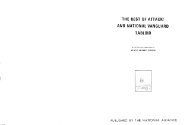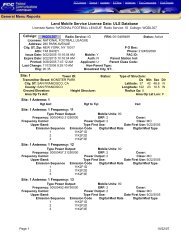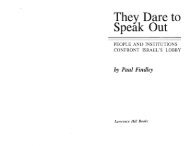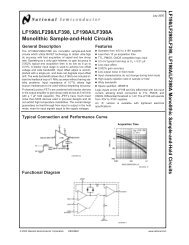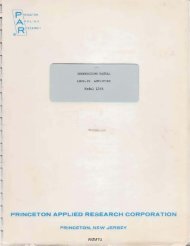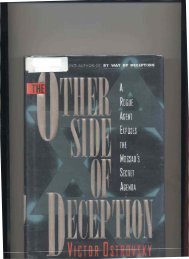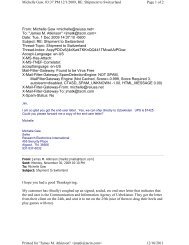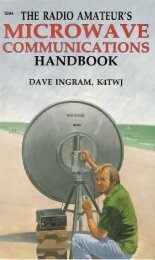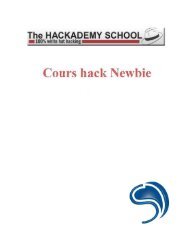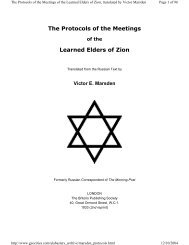Stands Among The World's Most Stands Among The ... - Index of
Stands Among The World's Most Stands Among The ... - Index of
Stands Among The World's Most Stands Among The ... - Index of
Create successful ePaper yourself
Turn your PDF publications into a flip-book with our unique Google optimized e-Paper software.
TORAH! TORAH! TORAH - PLEASE!<br />
THE BIG LIE<br />
"And while I am talking to you, mothers and fathers, I give you one more assurance. I have said this<br />
before but I shall say it again and again and again; your boys are not going to be sent into any foreign<br />
wars!" - Franklin D. Roosevelt, Campaign Speech in Boston, eve <strong>of</strong> 1940 election<br />
BRITISH WAR PAPERS INDICATE ROOSEVELT SOUGHT WAR WITH HITLER<br />
LONDON, Jan.1st:- President Franklin D. Roosevelt was so eager to get America into World War<br />
Two in 1941 that he went out <strong>of</strong> his way to provoke 'incidents' which could be represented as German<br />
aggression against America, according to British documents now de-classified.<br />
<strong>The</strong> show at least that this was what Roosevelt was telling Prime Minister Winston Churchill in the<br />
summer and autumn <strong>of</strong> that year.<br />
This is revealed in secret British wartime cabinet documents for 1941-45, 35-volumes <strong>of</strong> them - will<br />
be open to historians for the first time Monday at the public record <strong>of</strong>fice in London.<br />
Churchill, it emerges, dreaded that the Russians - invaded by Hitler in June, 1941 - would either<br />
collapse or accept a compromise peace within months. If that happened before the United States<br />
entered the war, he felt Britain's situation would be desperate.<br />
During a meeting at sea <strong>of</strong>f Newfoundland that produced the Atlantic Charter in August, 1941, the<br />
two leaders discussed this. Churchill reported back to the British cabinet, and the record <strong>of</strong> what he<br />
said was marked 'most secret' and withheld from even the narrow group entitled to read war cabinet<br />
minutes.<br />
Roosevelt was 'obviously determined' to come into the war, Churchill said. "If he were to put the<br />
issue <strong>of</strong> peace or war to Congress, they would debate it for three months. <strong>The</strong> President had said that<br />
he would wage war but not declare it, and that he would become more and more provocative. If the<br />
Germans did not like it they could attack the American forces."<br />
Under new arrangements the Americans were to convoy supplies for Britain as far as Iceland, thus<br />
releasing 52 British warships for other duties. <strong>The</strong> American escorts were ordered to be aggressive<br />
and to range up to 300 miles from the convoys in search <strong>of</strong> German submarines.<br />
'Everything was to be done to 'force' an incident to justify hostilities,' the papers said.<br />
A week later Lord Halifax, British Ambassador to Washington, was reinforcing this with a report to<br />
the British Cabinet that virtually the whole Roosevelt administration was anxious to come into the<br />
war ' and would be relieved if some incident, such as the torpedoing <strong>of</strong> an American ship, precipitated<br />
this event.'<br />
In the following months such incidents did occur. German submarines were depth charged by<br />
American ships and an American destroyer engaged in this act was torpedoed and sunk. But the<br />
Japanese attack on Pearl Harbor, December 7th removed any need to convince American public<br />
opinion.<br />
According to the records the British cabinet discussed in advance what its attitude would be if<br />
Germany attacked Russia, and decided that Germany should be represented as an insatiable tyrant that<br />
96


